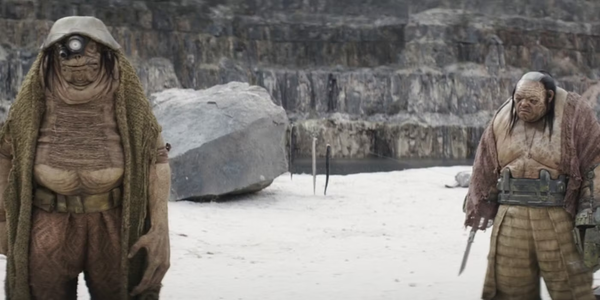I am very reluctant to endorse this type of television. What big IP like Star Wars, MCU, Batman, and the like are trying to do is to change how we think about genre.
Consider how the various iterations of Batman play across different market segments and in different genres: exclude the comics and just think about the grim Nolan films, the silly Teen Titans Go! cartoons, the silly Lego Batman, more 'serious' Batman cartoons for young adults and adolescents, etc. WB would have us believe that there's a Batman for every taste and in every genre.
The important difference, though, is that genre is public. No one owns the romantic comedy, the action film, the mystery thriller. But the dispersion of Batman or Lego or Star Wars or whatever across different genres would have us think that we must yoke together genre with conglomerate-controlled IP. It's just another way to monopolize culture.
Put another way, the owners of IP want us to conclude that Batman and Star Wars and the Avengers are the necessarily vehicles for telling any and every type of story.
So, I get this perspective. I also disagree. IP's often get criticized for being formulaic and, to an extent, they are. Part of Marvel's success, for a long time, was that they were able to stay within a formula, but do variations of a theme. Ant-Man is a heist film. Winter Soldier was a political drama.
The way you break formula is by bending genre.
In many ways, the larger the IP gets, the less important continuity is. It becomes a collection of stories that turn into the closest thing we have to a modern mythology. Kirby, who is unarguably the greatest comic book artist who ever lived, was fascinated by the concept of pantheons of superheroes, and gods. And mythological stories work because they can be diversified for a wide range of audiences. The myriad ways that "Batman" can be expressed is a testament to how flexible mythic archetypes are—able to reflect the anxieties, humor, and aspirations of different audiences across generations and genres.
Batman is a loner. Batman has a family. Paradoxes like this one are at the heart of what makes his stories work. And the different genres of Batman have been explored in the comics for over 80 years. The character has appeared in over 10,000 comic books.
That doesn't work without challenging what genre means.
Which leads us to Andor, which I would place among the best 10 shows that I have ever seen (And perhaps only behind Mash, West Wing, The Venture Brothers, and Treme).
Let's be honest, Disney has always known that Andor was worth making, even though it will likely be a financial loss for the franchise. As much as Disney gets criticized for only being interested in finances, they have taken some risks over the last few years in the name of putting out stories that they felt needed to be put out, with casts that are often controversial. Some of those stories have worked, some have not.
Andor works. It will be viewed as a success regardless of whether it recoups what it cost.
And Andor works precisely because it is Star Wars. Star Wars has always been about being a part of the resistance; it just is usually also a space opera, involving God-like creatures. Andor is about the little guy.
Rather than seeing Andor as a monopolization of genre, I see it as a case of genre being smuggled into the mainstream through familiar icons. Hell, I'm certain that there is no way that Andor would have received a fraction of the budget that it did if it wasn't under the Star Wars IP. Andor's audience is greater because it is a Star Wars piece, and Andor informs all Star Wars, past and present moving forward.
It also serves as a guide for combatting authoritarianism.
It is precisely because Andor uses a familiar universe to explore unfamiliar thematic and narrative territory - colonialism, system oppression, disillusionment, radicalization - that it is more than just an IP extension. This is a blueprint about what rebellions look like, while also a reminder that the cost of rebellion is greater than many people are willing to pay, and that rebellion is not something that one can do without putting their entire beings into it.


